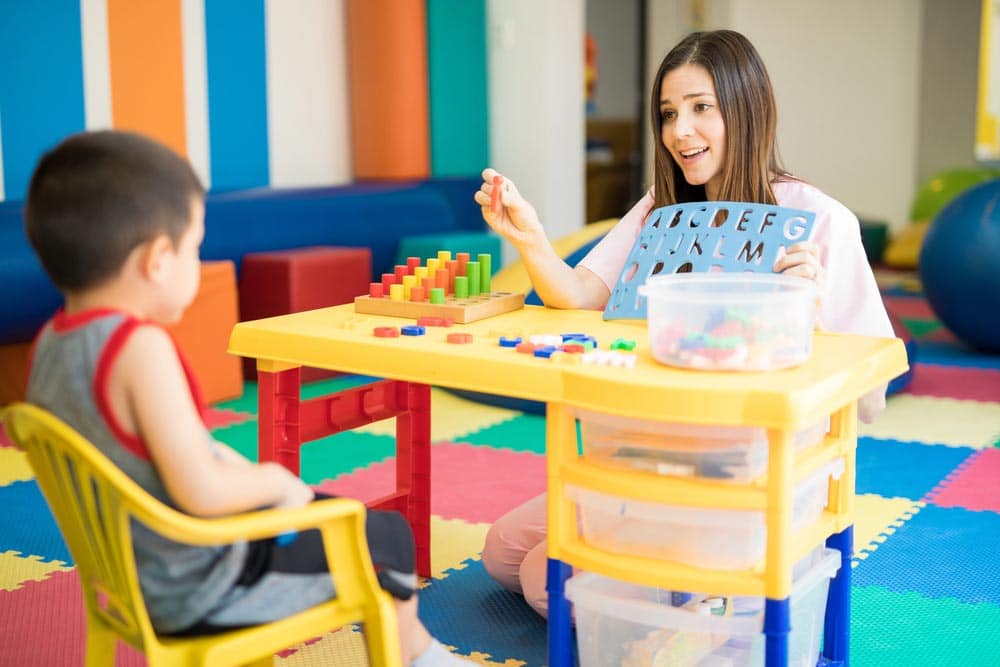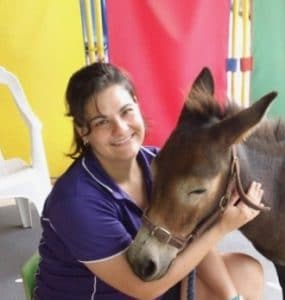Realising that your child has begun to stutter can be distressing for both parents and the child. Although stuttering can cause significant problems, in most cases, it is a phase that will pass relatively quickly, particularly when the right support and assistance is given.
In this article, we explain what stuttering is, what may cause it, when stuttering can be considered “normal” and when parents should seek professional assessment and advice. We also take a quick look at some of the treatment options that are available to children for whom stuttering is becoming a major problem.

What Is Stuttering?
Stuttering, also known as dysfluency, is the term given to interruptions, breaks, or delays in normal speech patterns. Children who stutter may repeat the first part of a word several times before completing it. They may fail to complete specific words, or not be able to say some words at all, perhaps substituting with an “um” or an “ah”. Stuttering may occur when faces with specific sounds or occur randomly. The frequency of stuttering may also vary, both between children and depending on factors affecting an individual child, for example, a child may stutter more when they are tired, stressed, or using the phone.
Some children may also develop facial tics, blink repeatedly or clench their fists or jaw when trying to speak clearly. In extreme cases, the child may be almost unintelligible.
What Causes Stuttering?
There are a number of factors that may contribute to stuttering, including developmental issues, a family history of stuttering, stuttering due to physical abnormalities such as nerve damage or having a different way of processing speech to the usual and family dynamics.
When Should Stuttering Be A Cause Of Concern?
As many as 20% of children will develop a stutter at some point; most of the time, stuttering starts when children are less than three years old. It is also more common in boys than girls. In most cases, if stuttering starts before the age of three, it will come and go until the child is about five, then disappear in about 95% of cases. Where stuttering persists, it is unlikely to continue into adult life, particularly if appropriate interventions are introduced.
For most children, stuttering is a temporary part of their language development and isn’t necessarily a cause for concern. Many children repeat certain words, substitute one word for another or experiment with the sound of words as part of their natural language development. However, if you are concerned about your child’s stutter and/or if they appear concerned about it, or the stutter has carried on for at least six months with no sign of diminution, it’s worth getting your child’s language development checked out.
What Help Is Available To Help Stutterers Overcome The Problem?
The most effective form of help for stuttering will usually come from a suitably qualified Speech Pathologist.
A Speech Pathologist will carry out a full assessment of your child’s speech and language, within the context of their overall development, family history and other variables that may affect their stutter.
Once the assessment has been completed, the therapist can decide on a suitable course of treatment. The exact nature of this depends on the cause of the stutter (for example if a physical cause is identified, further referrals may be needed to a faciomaxillary specialist or similar).
Usually, a combination of specialist speech and language exercises, alongside practical tips and simple lifestyle changes can be enough to significantly reduce or eliminate the stutter over the course of a few months.
Contact Us
To find out more about how a speech pathologist can resolve stuttering issues, call the team at Stepping Stones in Life Therapy in Darwin on 08 8985 6067.
Author

Barbara Kapser
Barbara Kapser is our psychologist at Stepping Stones in Life Therapy Service in Darwin. She's a member with the Australian Psychological Society and the Australian Association for Infant Mental Health.
She specialises in perinatal infant mental health, attachment disorders, developmental trauma and behaviour support.










